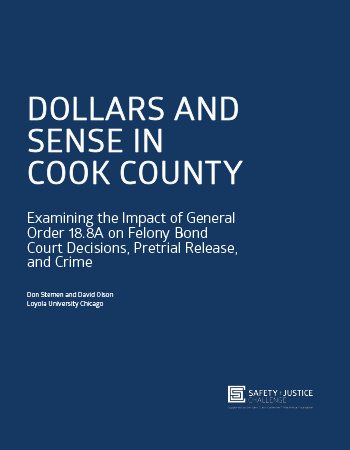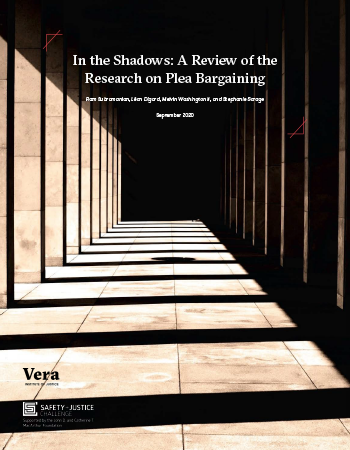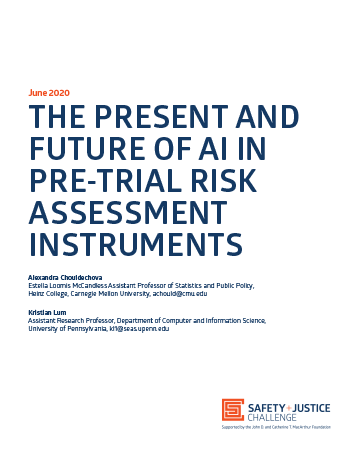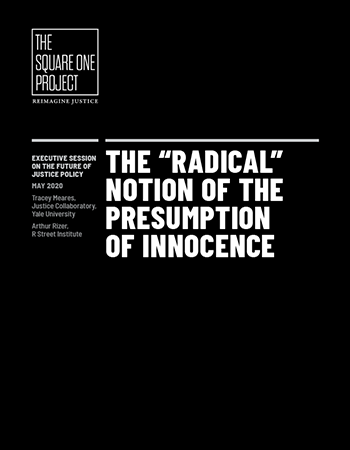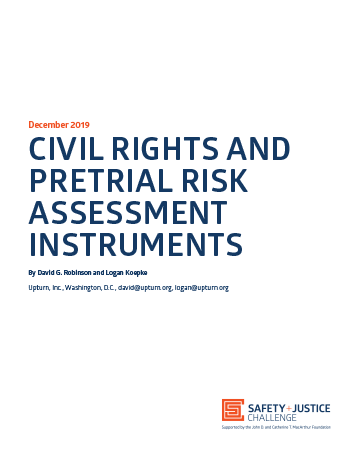Report
Data Analysis Jail Populations Pretrial and Bail November 19, 2020
Dollars and Sense In Cook County
This report by researchers at the Center for Criminal Justice Research, Policy, and Practice at Loyola University Chicago analyzes the impact of bond reform in Cook County on felony bond court decisions, pretrial release, and crime. Researchers evaluated a 2017 general order by Chief Judge of the Circuit Court of Cook County Timothy Evans reevaluating the use of monetary bail in Cook County. Using independent data, researchers found that Judge Evans’ general order increased the number of people released pretrial and was not associated with any significant change in new criminal activity, violent or otherwise, and was not associated with any change in the amount of crime in Chicago after 2017.
